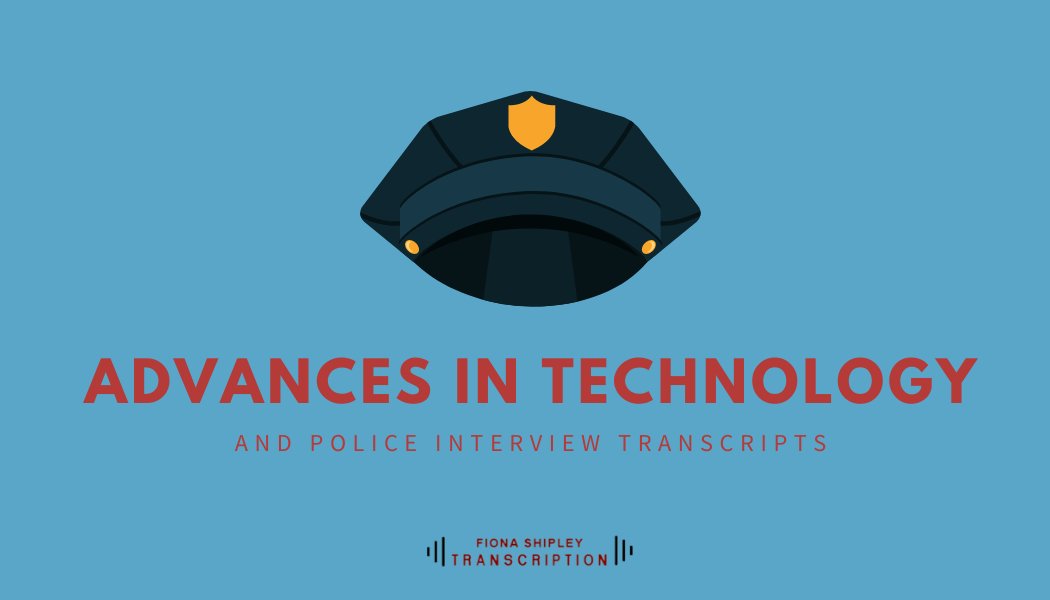Let’s talk police interviews and their transcripts.
Police interviews are when a person is questioned by police about their involvement or suspected involvement in a criminal offence – anyone who’s seen Line of Duty or any of the many police dramas on our TV screens will know exactly what we’re talking about!
Beyond the TV screens, they’re an important part of building a real life police case – and Fiona Shipley is regularly asked to produce written transcripts of them. Our clients in this area then receive from us a verbatim, accurate record of the interview, often produced with a fast turnaround. These interview transcripts are used as evidence in court, and are often integral to a case.
The type of evidence that can be referred to and used in court has evolved over the last decade, thanks to advances in technology. Let’s take a closer look….
A study of historical police interview transcripts…
The Home Office has recently published the results of a study that assessed changes in the presence of digital evidence in police investigations. The study looked at interview transcripts from 2010 to 2018 from the Court of Appeal full hearing judgements. These were used specifically because these hearings are always fully transcribed and include a summary of the relevant facts, including the evidence on which the judgements are based. By analysing these summaries, the researchers were able to demonstrate the changes in using digital evidence at a national level.
And what were the results…?!
Perhaps unsurprisingly the results mirror what has been happening in society as a whole – not only is digital information such as mobile phone locations being increasingly used, so is the sourcing of evidence from social media platforms. The breadth of information that can be gained from technology and digital sources is making a significant difference to how cases are being built.
Fiona Shipley transcription has years of experience in the police interview transcript process, and we’re very proud of our considerable expertise in the field. We understand that when it comes to law enforcement and prosecutorial transcription, the expectations are different from or rather even more important than with other forms of transcription, and require a great deal of expertise. Factors such as accuracy, turnaround time and confidentiality are hugely important.
In some ways there have been real leaps in how technology is being used – as highlighted by the use of social media platforms to build evidence. And yet in other ways, very little has changed in decades the fact that cassette tapes and CDs are still used for the recordings!

